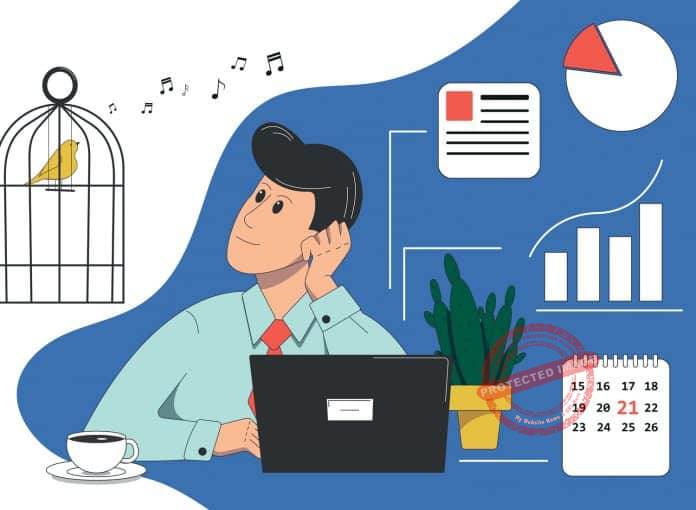Do you find yourself easily distracted and losing focus and need help on how to improve concentration?
Do you have trouble concentrating on tasks?
Perhaps you have a shorter attention span?
If you answered yes to any of these questions and you’re eager to improve your concentration levels, then you’ve found this on time.
This is because our core focus in this post is to help you improve your concentration levels in 10 easy steps.
Therefore, stay with us to discover these helpful tips.
How To Improve Concentration
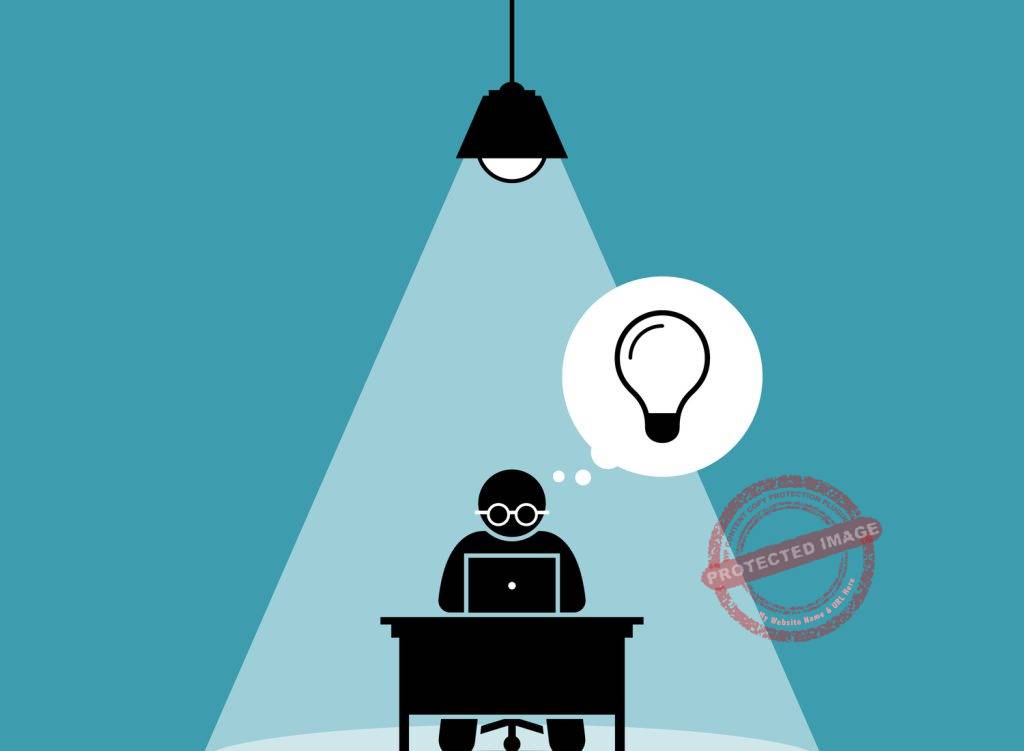
Poor concentration and distractions are enemies of productivity and efficiency.
Also, they are detrimental to personal growth and development.
Sometimes, you might find that you cannot perform your daily tasks and responsibilities due to poor concentration.
It could also be that your concentration problems are not just hurting you but becoming a challenge for others too.
You might be making the job of others difficult for them because you have poor concentration levels.
Whichever one it is, having poor concentration can only cause you more harm than good.
This is why you should work on improving your concentration levels.
This is only if you want to become more productive and get things done as at when due.
Granted, many internal and external factors make maintaining focus and concentration a bit difficult.
But that being said, it doesn’t mean that it is outrightly impossible to achieve.
First, identify what is making it hard for you to concentrate.
Then, you are halfway through the solution.
The next step would be to design ways to avoid what causes your loss of concentration or solve the problem when it occurs.
But first, let us see what concentration means and why it is important to improve it.
How to Improve Concentration – What does Concentration Mean?

Concentration can be defined as the power of focusing your whole attention on something, a thought, or a single subject.
This means being able to lock out everything else and focus your energy and attention on the one thing that is more important then.
When you’re fully concentrated on something, you’re not easily distracted by any other thing happening around you, be it noises, voices, or actions.
Not even internal factors such as your own thoughts can sway your mind from it.
This is because you have programmed your subconscious to focus on one thing and block out the others.
If you master this art of maintaining focus even in the most difficult circumstances, you can be said to have a high level of concentration.
On the other hand, if you find it hard to focus on a task, action, or thought and easily get distracted, you have poor concentration levels.
You might wonder: “What is my concentration level? Do I have a high level of concentration or a low one?”.
Usually, you should tell from how you handle daily activities if you have a good concentration level.
Though, certain signs will indicate whether or not you have a good level of concentration.
We will consider those signs in a moment, but first, why is it important to improve your concentration?
Improving Concentration – Why Important?
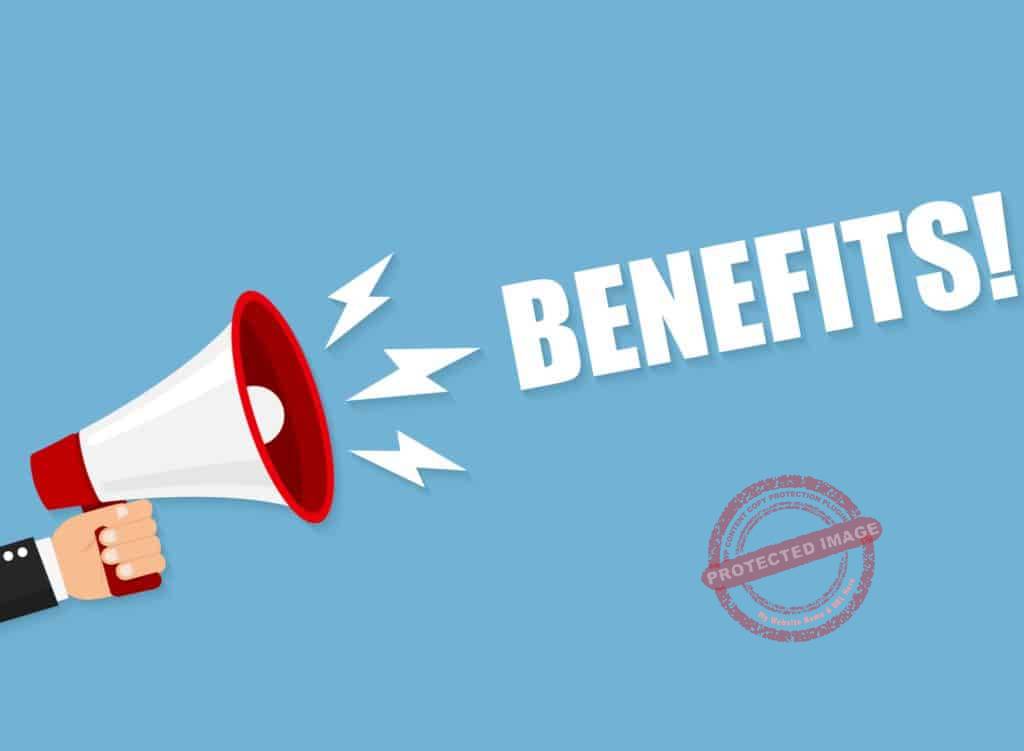
Improving your concentration level can do you a lot of good in all areas of life.
It could be beneficial to take a course in school, complete a task at home, or carry out your duties at work.
Some of the benefits that come with an improved level of concentration are:
Finishing up Tasks on Time
A drop in concentration levels can affect your productivity.
Likewise, it could make you experience delays in completing assigned tasks or projects.
However, when you improve your concentration levels, you are more likely to complete tasks and projects you set to do in record time.
You can beat deadlines and get more productive generally.
Improved Memory Power
Concentration and retentive memory are closely related, and one has been shown to influence the other.
Improving concentration can help you train your mind and improve your memory capabilities.
As such, you do not forget things easily but have a better retentive memory.
Filtering out Negative Thoughts
If you notice, those who suffer most from low self-esteem and fear of failure feed on negative thoughts.
With an improved concentration level, you do not have to fear this.
In fact, it is a great strength for you, as you can quickly filter out negative thoughts when they come and focus on positive ones.
You Keep Mistakes to the Barest Minimum
Your chances of making mistakes increase as your concentration levels drop.
If you work on improving concentration, you will often find that you can cut out mistakes from the things you do.
Great Study Habits
It comes as no surprise that lack of good concentration can affect study habits and patterns.
Distractions are all too common during the study.
Also, if you do not have good focus and concentration, you won’t complete your study.
However, with good concentration levels, you can also improve your study habits.
How to Improve Concentration – Indicators of Poor Concentration Levels

If you are not sure whether or not your concentration is at the optimum level, there are indicators for this.
See this as an alarm system with a sound telling you if you need to improve your concentration.
As we review these characteristics one at a time, ask yourself: “Do these resonate with me? Or Am I a victim of any of these traits?”.
Try and be honest with your answers to these questions.
Overall, having poor concentration is not a serious problem.
Nonetheless, only when you identify it can you improve it.
Misplacing Things Often
One of the signs that might point to issues with concentration is if you misplace things often.
Note that just misplacing valuable items doesn’t necessarily mean you have poor concentration.
But, how often does this happen? Has it become a regular occurrence?
Does it happen even with things that are so important, and one would expect that you keep it safe at all costs?
If you find that you are gradually getting into that habit, it might indicate that you have trouble concentrating.
Always Making Avoidable Mistakes
Another indication of a poor level of concentration is if you make careless and avoidable mistakes consistently.
This might be in your home or the workplace.
Remember that occasional mistakes may not be due to poor concentration, as everyone is prone to such errors.
But when those mistakes are very avoidable and boil down to carelessness, it points to concentration issues.
Failure to Finish a Task in Allotted Time
Are you always behind schedule when assigned important tasks that are time-bound and need urgent attention?
Take a moment to run through the process you took while carrying out such a task.
Is there any indication that you couldn’t meet up because you lost focus at some point, which affected your output?
When you regularly fail to finish assigned tasks in due time, it can also indicate you have trouble concentrating.
Forgetting Things Easily
Did you know that having difficulties remembering things doesn’t always mean that you are dumb, stupid, or intelligent?
Sometimes, not remembering things easily, especially things that happened in just a short time span, is an indicator of concentration problems.
This could be an event that just happened; a point just taught in a lecture room, a training just received, or even where you kept an item.
You might be surprised that your memory power will also increase automatically if you improve your concentration levels.
Being Restless/ Not Able to Sit Still
When you are given a task to complete, probably at work, how many times do you leave your desk?
And when you leave your desk, do you always have strong enough reasons to do so, or you want to get away from work?
If you experience a general and consistent degree of restlessness and do not stay in a place for long, you might be experiencing poor concentration.
Getting Distracted Easily
No doubt, we always have many distractions going on around us, whether we are at home or in our place of work.
This might be music, people walking around, pictures or videos, noises, and even our own thoughts.
It takes a high concentration level to shut out these distractions effectively, both internal and external, and focus on what we have at hand.
If you are finding this difficult, then you might have trouble with concentration.
Missing Meetings and Appointments
You know how you treat important meetings and appointments.
Because of how essential they are, we do not joke with them but treat them as critical to our success.
However, what if you still manage to miss out on such meetings and appointments somehow, even with your best efforts?
Probably you forgot the date and time of your meetings and appointments.
Could it be that you are having trouble focusing and concentrating on the little important details?
Yes, it could.
Having a Hard Time Thinking Clearly
Great thinkers will tell you that the last thing you need to think critically is a distraction.
When you go on a deliberate path of creative thinking, you’ll need deep concentration.
However, if you always find it difficult to think clearly and get your line of thought interrupted easily, you have concentration problems.
Being Unable to Handle Tasks you’d Usually do Easily
Sometimes, concentration issues might happen sparingly.
It might not be so serious that it happens to you every time.
There might be times when you want to perform your daily tasks and duties, which you do easily before, and it gets difficult.
You might begin to experience challenges and complications with rather straightforward tasks.
That is also a sign of a poor level of concentration at that particular time.
Now that you know the signs of poor concentration levels, you might be eager to know the underlying factors responsible for this.
Let’s find out!
How to Improve Concentration – Factors Responsible for Poor Concentration
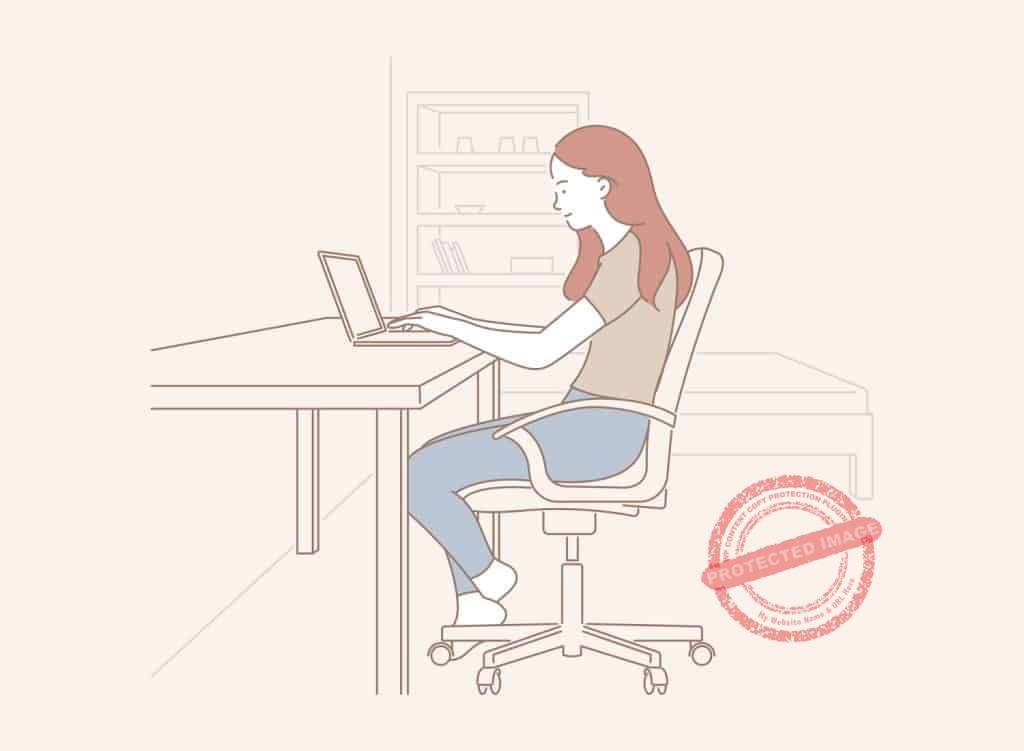
The causes of poor concentration levels have been traced to physical, emotional, psychological, and even health-related causes.
That means that some of us have problems concentrating because of some physical activities we engage in or deprive ourselves of.
On the other hand, others have this problem due to issues beyond the physical and affect the mental space.
In some cases, though rare, you might be having trouble concentrating because you suffer from a medical condition.
Now, let us look at some of the causes that have been identified.
Hopefully, you can see which of them is more culpable for your lack of concentration.
Anxiety
Anxiety is a psychological condition that can cause difficulty concentrating.
Being anxious means being unduly worried about everything and constantly fearing that something would go wrong or not work out well.
You might feel such anxiety daily.
This might be because of certain problems you are experiencing or just before carrying out an assignment or handling a task.
When you are anxious, it can affect your thought process and make it difficult to concentrate.
Lack Of Sufficient Sleep
Having quality and sufficient sleep is very important to stay focused, sharp and have your brain functioning at the optimum capacity.
On the other hand, if you deprive yourself of sleep, it can affect your memory power, drain your focus and make you lose concentration.
Recall times when you’ve had a hard time concentrating at school or work during an entire day.
Could it be that you did not get sufficient sleep the day before, either by sleeping late or waking up very early?
Not getting enough sleep, or in other words, sleep deprivation, can be contributing to your troubles with concentration.
Alcohol Abuse
Another thing that might be making it difficult for you to concentrate is your alcohol addiction.
Chronic alcoholism has been proven to hurt the brain, affecting cognitive and retentive abilities.
It could also be that the regular intake of alcohol is having a bad combination with other drugs you take, causing you concentration problems.
Stress
Having to deal with excessive stress can also contribute to troubles with concentration.
If you are always busy and hardly create time for rest or leisure activities to relax and unwind, you are at risk.
You might discover that you gradually start forgetting things easily, losing your memory power, and unable to see tasks to completion.
If that happens, you need to quickly improve your concentration by treating the problem from the source.
Medications
When you buy medications, it is always good to check the body of the package and the label to read instructions.
Most times, there are indications on the medication that it could cause drowsiness or memory loss.
Or it could be that some medications you are on can interact with other drugs and cause you problems with concentration.
Depression
This is yet another psychological factor that contributes to the problem with concentration.
Depression might result from suffering a traumatic experience in life or facing serious life anxieties and difficulties.
Signs of depression are well pronounced, and it is recommended to seek expert advice and help if you find yourself suffering from such.
Nutritional Deficiency
Suffering memory loss and lack of concentration has also been linked to malnutrition and deficiency of some essential nutrients.
Most especially, a lack of vitamin B can make you susceptible to losing focus and concentration.
The points mentioned above are some of the causes of concentration problems resulting from psychological and unhealthy lifestyle choices.
However, some factors are more serious and are health-related.
Some of these are:
Disease(s) of the Brain or Mental Disorders
Although memory loss or concentration problems might be due to a tumor in the brain or an infection in rare cases.
A person who has dementia will also suffer from a lack of focus and concentration.
Another brain disorder that affects one’s ability to concentrate is schizophrenia, which affects thinking capacity.
Stroke
Stroke is also a condition that affects the brain because it doesn’t receive enough oxygen to function properly.
Among the symptoms of a stroke is a tendency to forget things easily, which also comes with concentration problems.
Attention Deficit Hyperactivity Disorder (ADHD)
ADHD is a mental disorder that can result in having hyperactive behaviors and characteristics.
This can happen to kids and adults alike.
One of the symptoms of this condition is having difficulties concentrating, focusing, and holding your attention for a long period of time.
How to Improve Concentration
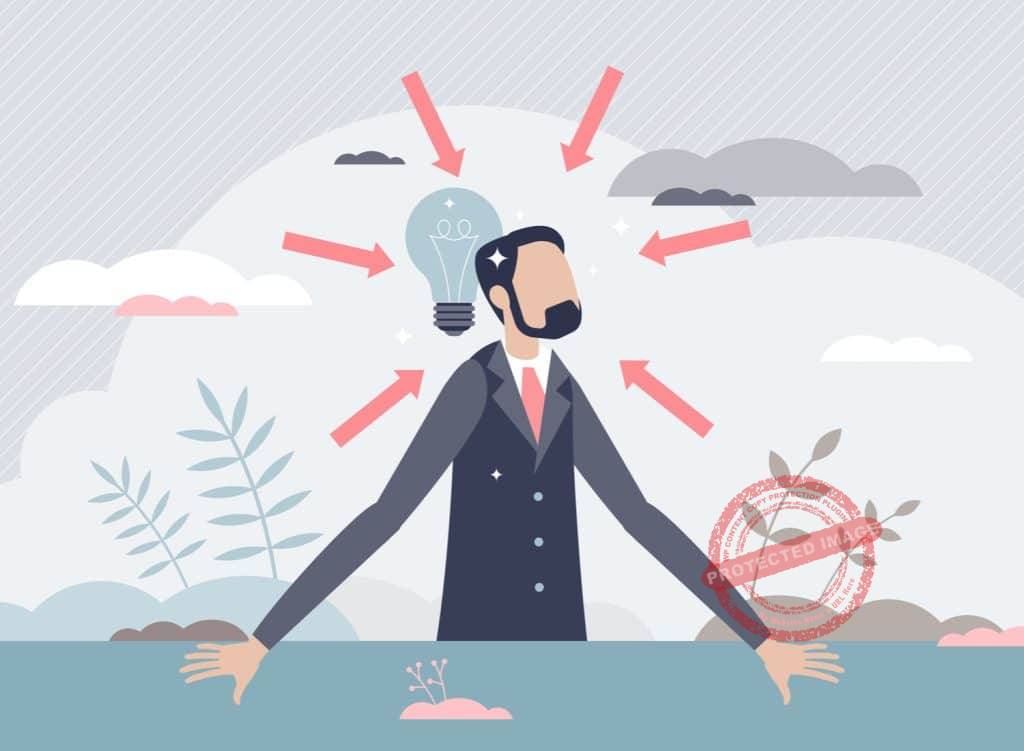
If you are experiencing some challenges keeping your concentration levels at the optimum, maybe sometimes or at all times, this part is for you.
Try out these practical steps in improving your concentration today:
Block out Distractions
One of the things that affect concentration levels, especially when working, is distractions.
These distractions might be individuals around you, your mobile phone, music, or other things in your surrounding.
If you want to improve your concentration, you will need to do away with such distractions when you want to work.
The actions you might take include: moving away to a secluded location from friends, keeping your mobile phone away from you, or even blocking websites that distract you on your web browser.
That way, your chances of concentrating better will increase.
Exercise Regularly
We’ve identified stress, fatigue, and even anxiety as some of the causes of a drop in your concentration levels.
Exercise helps keep you in good physical shape, so it also helps you stay mentally fit.
Some of the exercise routines you can take up are: walking, jogging, working on the treadmill in a gym, yoga, e.t.c.
Get Quality Sleep
The importance of getting sufficient and quality rest/sleep cannot be overemphasized in improving concentration.
When you have sufficient rest, especially the night before the day for work, you wake up sharper and stronger, ready to go again.
You allow your body to heal itself from the stress and activities of the previous day, and you find that you concentrate better at work or school.
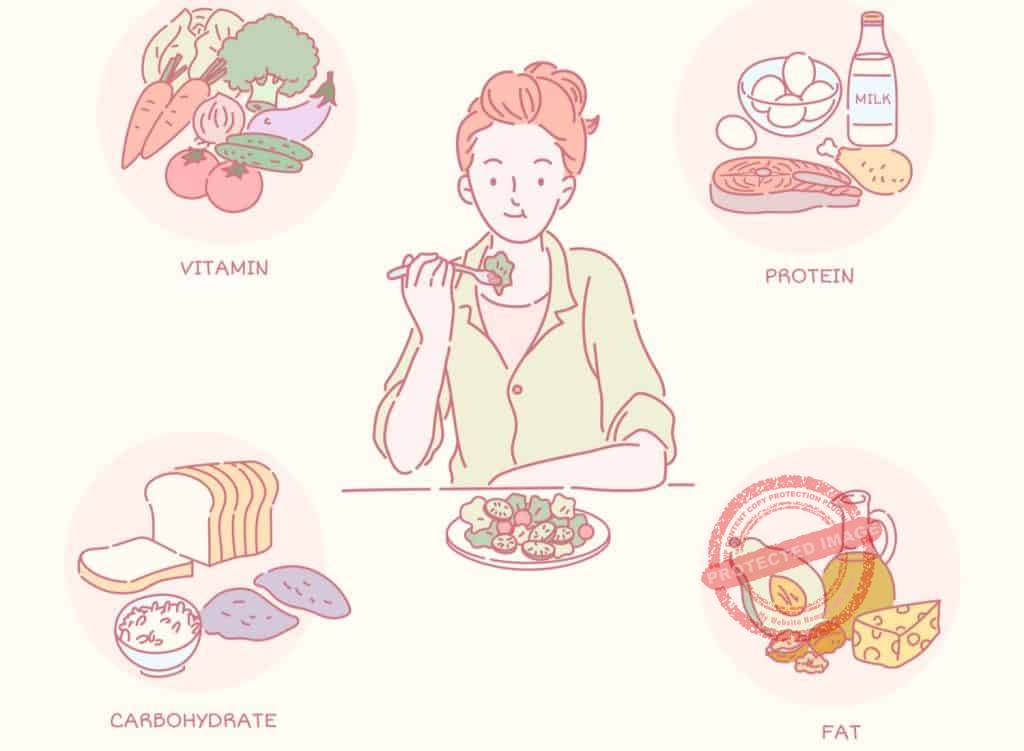
Eat Nutritious Foods Regularly
To be sure, your eating habits and choice of food can affect your physical/mental health and well-being.
Your physical and mental well-being, in turn, can have an impact on your level of concentration.
Therefore, make it a goal to eat regularly, not skipping meals unnecessarily, especially if you are very busy.
It is not just enough to eat regularly, though; it is also important to make the food highly nutritious.
By nutritious, we mean foods rich in essential vitamins and minerals, those proven to help in improving focus, concentration, and memory power.
Fruits and vegetables are a perfect place to start.
Identify your Most Productive Hours and Plan Important Work for that Time
You need to know that the makeup of individuals differs, and so does our most productive time of the day.
Some people are most productive in the early part of the day, some in the afternoon after lunch, and others late at night.
You need to study yourself to identify when you are at your optimum best.
Once you do this, then you can plan important tasks or projects that demand your full attention around that time.
You are more likely to improve your concentration that way.

Cultivate a Good Reading Culture
Naturally, when one cultivates the habit of reading, they have no option but to focus attentively, even to the minutest detail.
Over time, you will find that this will help you improve your ability to focus on other tasks and responsibilities.
A good reading habit can thus help you improve concentration.
Play Games that Help Train your Brain on Focus
Well, it’s good to know that gaming isn’t necessarily a full-time distraction on its own, except when it is done when you should be doing something more important.
Certain games put your smartness and intelligence to the test, and such games need the utmost level of focus and attention.
You can train yourself by playing games like this that feed your brain and help it improve its concentration levels.
Some examples of such games include; scrabble, word search, crossword puzzles, chess e.t.c.
Don’t Overwork Yourself, Take Breaks.
You probably might have noticed that your attention span and concentration levels tend to drop the more time you spend working on a project or task.
The natural tendency is to want to push on and complete the task, especially when there is a deadline to meet.
However, that might be counterproductive, as you might find yourself hitting a wall over and over again and get fewer results.
Learn to take a break from work when you feel you are getting drained mentally and losing concentration.
That break can help you to get back on track and improve your concentration immensely.
Organize your Workspace
We could put this under avoiding distractions.
But we decided to make it stand alone because of how important it is.
If you really want to improve your concentration, especially at work, you need to keep your desk, workspace, and environment organized.
That would mean removing papers or files that are not relevant and other objects that might easily compete for your attention.
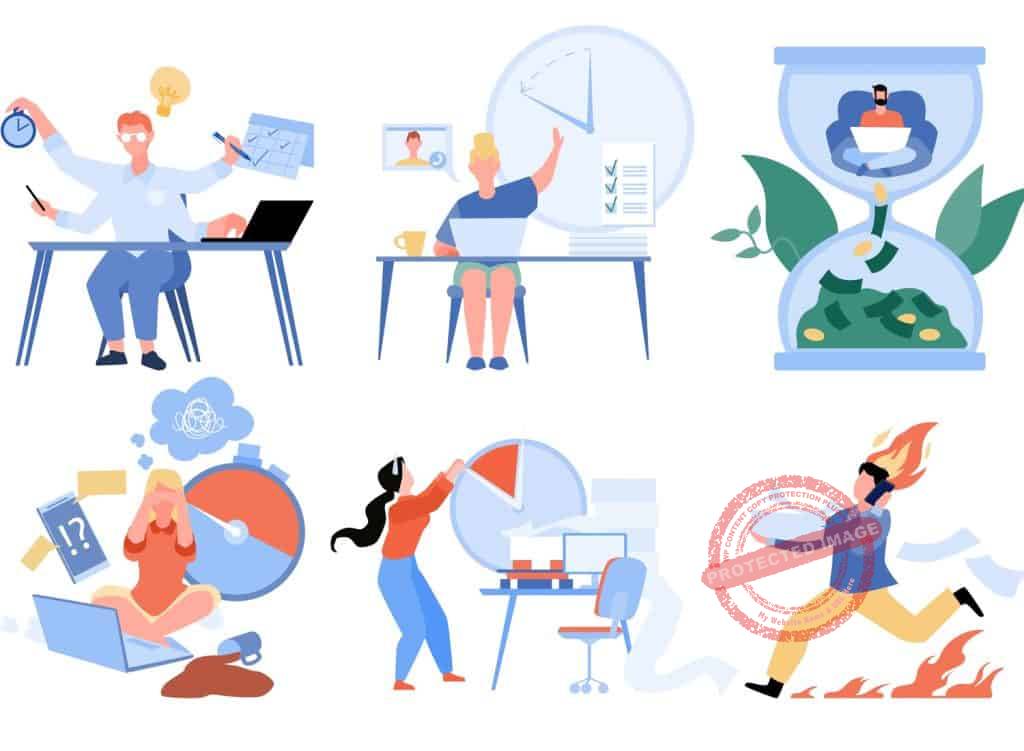
Set Deadlines and Penalties for Failure
Yes, sometimes, you might need to be tough on yourself to make your body and mind concentrate.
Even when the job at hand doesn’t have a set deadline, set deadlines for yourself.
In addition to that, you might also use a timer to make yourself sit and complete a task, disciplining yourself not to get up as that time lasts.
To push you a little further, you can also set penalties for yourself if you do not meet the deadlines.
Seek Medical Help if Needed
You would recall that we stated that sometimes the causes of poor concentration levels might be health-related.
If you find out that this is the case with you, or your concentration levels are getting more chronic, it’s best to seek medical help.
Professionals in this field would recommend a good routine or medications to help you.
Overall, with the right application, you should be getting your concentration up in no distant time.
Final Thoughts on How to Improve Concentration

Poor concentration levels can be really unforgiven, as it has been proven to affect productivity and even stifle the chances of success.
The positive thing is that the underlying cause of this can be diagnosed, and there are trusted ways to overcome the challenge.
So, are you experiencing troubles with focus and concentration?
Sit back, relax and apply the suggestions given so far, and you are on your way to getting your concentration level back to the optimum level.

